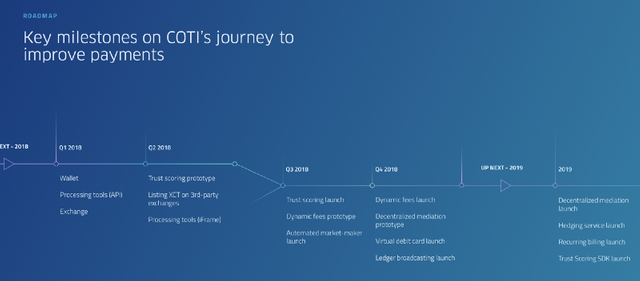COTI: How Good is Your Trust Score?
People have trust issues with online payments, and it’s become an obstacle that many payments providers just can’t seem to get past. And trust isn’t just an issue of financial security. Of course consumers need to be able to trust that their transactions are secure, but they also need to be able to trust that they can get the answers that they need should an issue occur. Whether it’s a simple glitch in the transaction or a larger issue. But, the simple fact of the matter is, they can’t.
Trust is about knowing and believing in a brand to fulfill the consumer needs throughout the purchasing process. It becomes the currency for interactions beyond simply purchasing a product; innovative shopping experiences require a deeper relationship with customers.
Yet people still worry about the risks associated with using online payments or when paying for things they would like to buy.
By knowing this, merchants are facing a challenge in today’s online environment, and some might not even be aware of the challenges or opportunities. The opportunity and challenge is how to best reach the consumers who in turn engage their peers, classmates, or co-workers. This means that the trust and power in a way lies on the everyday people who are using their products or services.
Trust Is Not Given; Trust Is Earned
Coti, a payment transaction network supported by a native digital currency, believes that for online merchants to succeed, building trust with the consumer is key. When the consumer needs help, business merchants can’t destroy that trust by making it hard to find. If consumers have to leave the merchants product, it will be a fractured experience and broken trust.
Trust in payment systems is influenced by a few factors such as anonymity, security, reliability, as well as the reputation of the entity that introduces the system. Issues of trust and security are connected to exchange, storage and management of the payment and user-specific information. That’s why Coti develops Trust Scores, which are assigned to each user account based on its historical behaviour, and govern the approval of that account’s transactions within the network and associated fees.
Each transaction in the Coti network receives a Trust Score based on a combination of the sending account’s historical behaviour and information about the account owner. This information is given to COTI when the user first creates an account and is substantiated by supporting documentation.
Trust Scores are the main determinant of transaction fees in COTI. Participants with high Trust Scores can expect to pay low-to-zero fees, whilst participants with low Trust Scores will need to pay higher fees. This incentivises merchants to supply the best service possible in order to increase their Trust Scores. An additional benefit of having a high Trust Score is that higher Trust Scores are confirmed faster.
By using Trust Score, Coti can reduce the compromise probability and increase the user satisfaction. Consumers can expect a business merchants committed to providing them with the personalized service they really need. With Coti platform, anyone can pay for anything without fear of merchants for breaking down the relationship with untrusted behavior.
Another advantage is “The Mediation Service” in which Coti offers a ready-to-use service a user can revert to in cases of fraud or any other dispute related to transactions settled through the COTI payment system. The Mediation Service creates a rolling reserve for each merchant to cover possible claims and a system-wide Reserve Credit Fund (RCF) to further guarantee it. Both funds are maintained in COTI’s native currency, and the required size of a merchant’s rolling reserve is calculated based on the merchant’s Trust Score.
COTI Roadmap


